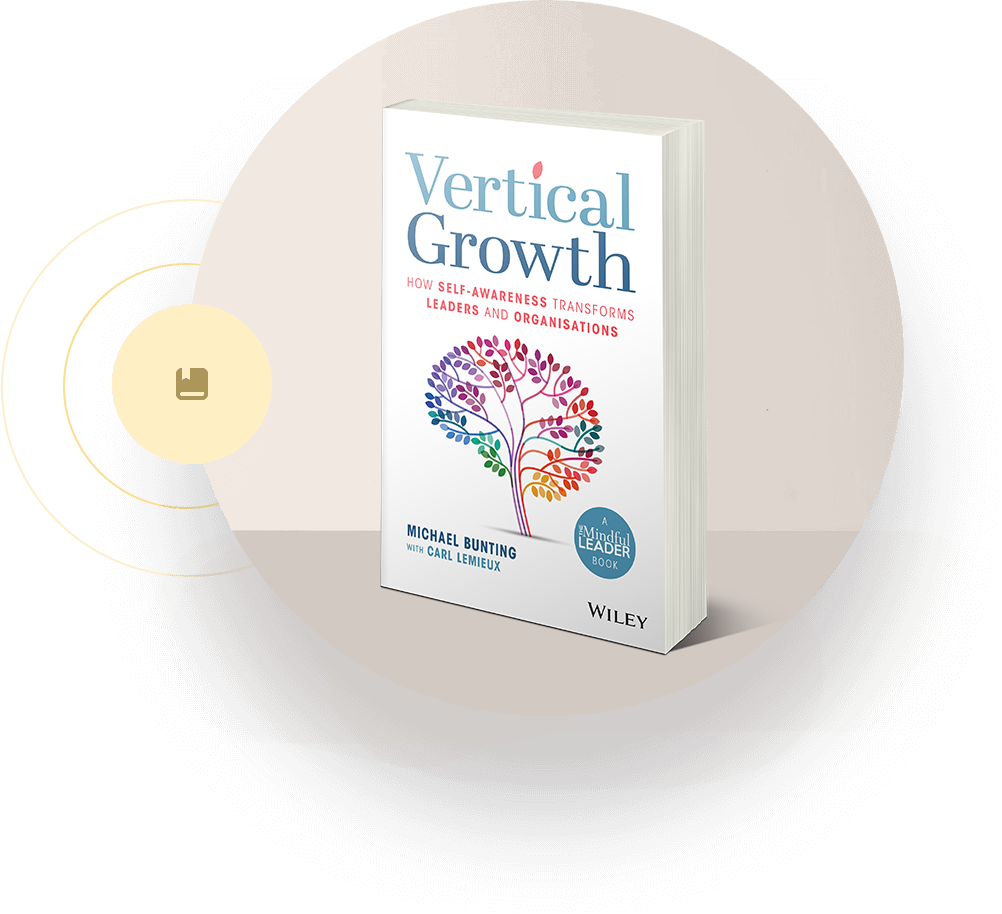Unconscious Programming and the Importance of Growth Values
The process of personal and development is about overcoming our subconscious programming and conditioned responses and living from consciously chosen values that help us grow. Growth values, which pull us in the direction of our conscious or best intentions, are distinguished from assumed or unconscious values handed down to us from our parents and society.
Although any value we choose to develop can strengthen our mind and improve our life, particular values may help us grow more than others. The organisational development firm Human Synergistics uses a valuable tool called the ‘Circumplex’, which can help us home in on the values we need most.
Exploring Performance Styles for Personal Growth
The Circumplex breaks down the factors underlying performance effectiveness (at individual, group and organisational levels) into 12 behaviours or styles. These styles are further grouped into three general clusters or zones:
- Aggressive/defensive styles lead people to focus on their own needs at the expense of those of their group and organisation. This leads to stress, turnover and inconsistent performance.
- Passive/defensive styles lead people to subordinate themselves to the organisation, stifle creativity and initiative, and allow the organisation to stagnate.
- Constructive styles encourage the attainment of organisational goals through people development; promote teamwork and synergy; and enhance individual, group, and organisational adaptability and effectiveness.
Choosing Growth Values Based on Natural Behavior
Many of us (and I include myself) best fit into the first zone: our natural tendency is to be perfectionist, competitive, power-centric and oppositional. These leaders tend to care less about the feelings of others and more about outcomes. They can often railroad others in the pursuit of a goal. For us, the values motivating our behaviour are power, status and winning.
Those in the second zone have a natural tendency to be more avoidant, dependent, conventional and focused on approval. They avoid tough conversations; they don’t want to rock the boat; they want to be nice and fit in. The values are job security, approval, comfort and belonging.
The third zone on the Circumplex represents an evolved, self-examining state. We develop with wholesome values such as respect, honesty, integrity, compassion, curiosity and generosity. I’ve never met anyone who belongs naturally in this zone; rather, these tendencies must be consciously cultivated.
As you’re reading this, I’m guessing you know if you naturally tend more towards zones 1 or 2. This gives you a clue to the values that may counterbalance that tendency. For example, if you tend to default to zone 1, choosing the value of excellence or accountability may actually be counterproductive because it may drive more behaviour associated with this zone. However, the values of kindness and compassion will tend to balance out your natural zone 1 tendencies.
Conversely, if you tend toward zone 2 behaviours, the values of kindness and compassion may not be the most helpful. Instead, you may want to focus on courage or honesty — values that encourage you to stand up for yourself, be clear about your needs, challenge the system, take risks and confront harmful behaviour.
Michaela Wortley, Coaching, Teaming and Mediation Leader for the Oceania practice of the professional services organisation EY, defaults to zone 1. She is driven and a perfectionist. Although these can be valuable qualities, in her leadership they manifested in her being controlling, task-driven and uncaring. She told me, ‘When things aren’t going fast enough or how I want, I chime in with my viewpoint before others have a chance to speak. I can come across as very critical when I feel there’s a better way or it’s not good enough.’
To overcome her zone 1 tendencies, Michaela chose two deliberate practices. ‘I set expectations and then step away and provide space for others to deliver, instead of being constantly there to control the process. The other thing I’m trying to do is to just be more caring. When someone delivers incomplete or substandard work, I ask questions like, ‘What’s going on in your world?’ That’s a very difference conversation from, ‘This isn’t what I wanted.’ It’s more caring.
‘I’m genuinely a caring person, but I’m also very tough and driven, and too often the caring takes a back seat as the toughness takes priority. I have to manage that side of me and consciously cultivate my value of caring.’
When considering the values you want to cultivate in yourself, identify those that will make you a more well-rounded and flexible human being. Psychological flexibility is a sign of maturity; the more mature you are, the more flexible you are. You can be gentle and kind, as well as tough and direct.
The Power of Difficult Values for Personal Development
James Skinner, at EY, shared with me why he focuses on values that are difficult for him to live by. ‘The only way to understand the blind spots or competing commitments that may be holding you back from living truly congruently is to set a value and a behaviour that you’d like to live but for some reason struggle with. I look for the behaviours that cause me stress and frustration because of my inability to control them in certain situations. By putting my chosen values and behaviours into action and then reflecting on the feedback I receive, I get insights into what is holding me back.
‘You’re never going to learn anything by doing something you already find easy. You need to set yourself at something you find difficult. Only by going on that journey will you start to recognise what holds you back in any particular situation.’
Isabel Matthews, Head of People and Organisation of the Global Drug Development division of Novartis, shared with me how she has struggled with giving people honest feedback and has therefore tended to avoid tough conversations. When we dug deeper, she discovered that she would often cover up this avoidance in the name of her value of fairness.
I asked her, ‘Subconsciously, what were you worried would happen if you gave people honest feedback?’
She responded, ‘I was worried that relationships would be completely broken, and therefore nobody would like me. So instead of holding people to account, I would compensate for them. I wanted to avoid conflict and create harmony in the team. So I would tell myself that my value of fairness was helping to create harmony. At the risk of being perceived as unfair, I would give people the benefit of the doubt and would not confront them when it needed to be done.
‘It all really came down to my core fear: Would I still be appreciated? Would I still be liked and loved?’
Her conditioned response, based on her subconscious assumptions, was avoidance. To overcome this pattern, Isabel chose to work on the value of accountability. ‘This is first about setting really clear expectations up front,’ she explained. ‘In the past I found that I couldn’t hold people accountable because I hadn’t set clear expectations. This means that I’m now more true to my value of fairness, because it’s not fair to hold someone accountable to an unclear standard.
‘It also means providing immediate feedback to team members when it needs to happen, instead of avoiding it. I can no longer tolerate poor performance or behaviour in the name of harmony. This is not being fair to the team.’
I arrived at my two core growth values through a determination to grow, and trying to understand where my conditioned patterns were hijacking my happiness and inner wellbeing.
The first value I worked with consciously was honesty. I came to honesty when Russ Hudson, the Enneagram author and teacher, helped me fully realise the extent to which I was presenting an image for other people to see, and how it was based on a deep lack of self-worth. Russ put it beautifully: ‘Michael, this image is designed to earn approval, admiration and love. But the best you will ever get is people loving the image, not you. You will never find the connection and acceptance you long for by investing in that image. It’s not even who you are. And not only that, every time you invest in image management, you reaffirm that your real self is unworthy of acceptance and love.’
Practical Tips for Choosing and Cultivating Personal Values
That was a wonderful but also very tough moment of truth for me. Thankfully, Russ delivered it to me with a lot of care and sensitivity. I dreaded asking, but knew I had to: ‘What can I do to get out of this self-defeating pattern?’
He recommended that I practise complete honesty and transparency. Yet that was the very last thing I wanted to do. I was terrified of this because I was convinced that if I shared my whole self with people, they would reject me, and my worst fears would come true. I would look like a loser, not a winner. Which is why I now tell my clients, ‘The more a values-based development practice scares you, the more likely it is to be exactly what you most need.’
It took me many years of practice, and a lot of very challenging moments, before honesty felt comfortable to me.
The next growth value I chose to cultivate was kindness. I’ve found that these two values — honesty and kindness — counterbalance each other beautifully. When I’m practising honesty without kindness, it can get a bit brutal and unfair at times. Kindness tempers honesty. But equally, kindness without honesty can turn very quickly into neediness and faking. Honesty balances that out.
As you ponder the values you want to cultivate in your life, consider the following questions:
- What value/s, if practised, would help me to grow and become more balanced and wise?
- What is waiting to emerge from me to unleash my growth edge?
- Who do I know that I admire, and what specific qualities or values in them do I admire?
- What kind of people do I want my children to become? What kind of values would I love them to display?
- What value do I secretly wish I was better at?
- What value that is important to me do I find the most challenging to master?
The Purpose and Benefits of Growth Values
The purpose of holding values is not to pretend that simply identifying with values alone makes us good people. Rather, it’s to help us identify our values breaches, address them, and change our behaviour to grow in the direction of our values. We don’t choose growth values based on who we believe we already are. Rather, we choose them in areas where we see room for improvement.








